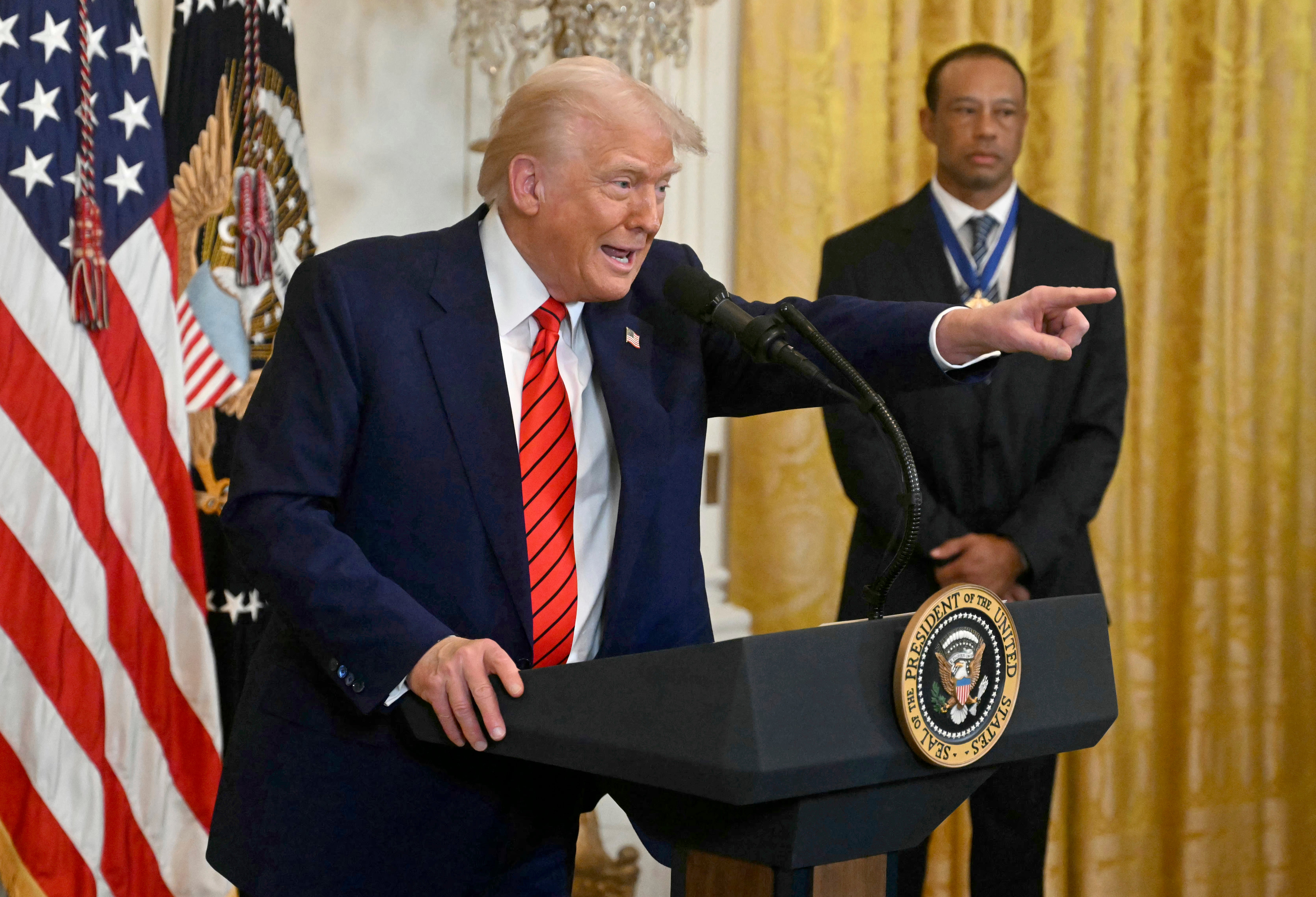While other agencies and institutions cancel or scale back their own events following his threats to diversity programs, Donald Trump addressed a crowd inside the White House to recognize Black History Month despite spending the last month torching diversity initiatives and anti-discrimination policies he smeared as “racist” and “dangerous.”
Trump, standing next to golfer Tiger Woods, accused Joe Biden’s administration of trying “to reduce all of American history to a single year: 1619,” referencing The New York Times project examining slavery’s foundational role in the United States.
“Under our administration, we honor the indispensable role black Americans have always played in the immortal cause of another date: 1776,” Trump said from scripted remarks Thursday.

“Millions of Blacks were brought here in slavery and kept in that evil condition for generations,” Trump said from prepared remarks. “But because of the steadfast faith of patriots of all colors, we abolished that horrific institution, expanded civil rights and advanced America’s destiny.”
The president specifically hailed the work of far-right billionaire Elon Musk, who has allowed hate speech to flourish on his X platform while he dispatches his so-called Department of Government Efficiency crew — including openly racist engineers who promote eugenics — to make drastic decisions about the fates of thousands of federal workers. Roughly 18 percent of the federal workforce is Black.
“Should I run again? You tell me,” Trump said at one point, pausing to soak in the cheers and applause. “There’s your controversy right there. There’s your controversy.”
He laughed and turned to Woods while the crowd chanted “four more years.”
“You’re gonna see that tonight Tim, on television,” said Trump, looking at South Carolina Senator Tim Scott.
Trump cannot run for a third term as president. The 22nd Amendment of the Constitution says presidents can only serve up to two full terms, though Trump has previously said he may feel “entitled” to more after his current term ends in January 2029.
Trump did not mention his executive orders targeting DEI, which threaten to terminate federal funds for any government program, health services and schools that are accused of engaging with diversity, equity and inclusion and accessibility initiatives.
The orders have thrown agencies and other government entities, schools and other institutions into chaos, from forcing layoffs to changing how they can acknowledge civil rights history or accommodate people with disabilities or report demographic data on race and gender.
The orders “reverse decades” of progress and pose an “existential threat” to civil rights, according to the Legal Defense Fund and Lambda Legal, which filed a lawsuit against the Trump administration this week on behalf of the National Urban League, the National Fair Housing Alliance and the AIDS Foundation of Chicago in an effort to strike down Trump’s orders.
Last month, the Defense Department issued guidance declaring “identity months dead” and said Black History Month, Women’s History Month and National Disability Employment Awareness Month would no longer be recognized during working hours across the entire agency.
On February 1, the first day of Black History Month, Transportation Secretary Sean Duffy announced the agency “will no longer participate in celebrations based on immutable traits or any other identity-based observances.”
Last week, Musk’s DOGE group and the Department of Education threatened to revoke federal funding for public schools and universities unless they remove all diversity, equity and inclusion programming within two weeks, which could have severe, far-reaching implications for public colleges and universities with programming for minority or disadvantaged students, including student aid and campus clubs and events.

